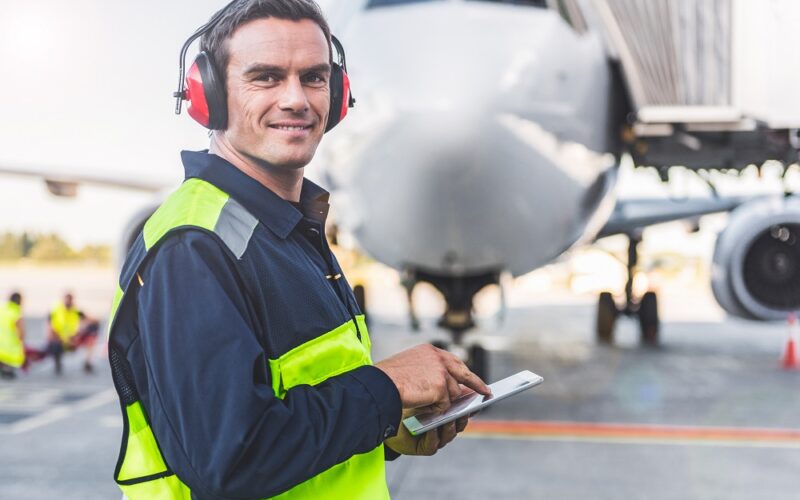In today’s fast-paced world, digital technology has permeated every corner of our lives, and the aviation industry is no exception. From passenger bookings to flight operations, the aviation sector has undergone a remarkable transformation thanks to digital advancements. In this article, Jainita Hogervorst, Director of Aerviva Aviation Consultancy, a company based in Dubai specializing in aviation recruitment and document management, explores the role of digital technology in reshaping aviation jobs and discusses the skills and training needed for aviation professionals to keep up with the digital wave.
Data analytics: the foundation of digital changes
Digital technology is gradually becoming the backbone of the aviation industry, making operations smoother, safer, and more efficient. IATA defines digital transformation as “value creation through the deconstruction of legacy processes and the reconstruction of these processes leveraging digital assets”. Nowadays, from the moment a passenger books a ticket online to the time they disembark from their flight, digital tools are at play. Transformation is happening across various aspects of aviation, profoundly impacting jobs. “One of the most significant trends in aviation is the use of data analytics. Airlines collect vast amounts of data on everything from flight performance to passenger preferences. With new technologies such as AI and machine learning emerging at speed, this data helps to optimize routes, reduce fuel consumption, and enhance the passenger experience. Aviation professionals need to understand how to interpret and leverage this data effectively,” explains Hogervorst.
To adapt to the digital advancements sweeping through the aviation industry, aviation professionals must first and foremost become digitally literate and learn how to analyse and derive insights from data. “Aviation professionals should be comfortable navigating digital systems, understanding basic programming concepts, and using software tools relevant to their roles. With the influx of data in aviation, understanding data analysis tools and techniques is crucial. People working in a company should be open to learning and adapting to new technologies as they emerge, “says Director of Aerviva Aviation Consultancy.
Automation’s impact on aviation and its jobs
Data is the main catalyst of automation, which streamlines many aspects of aviation, from check-in kiosks at airports to autopilot systems in the cockpit and air traffic management. It has become deeply integrated, enhancing efficiency, safety, and the overall passenger experience. These advancements are not limited to a single area but have permeated every aspect of the industry, from pre-flight preparations to in-flight operations and post-flight maintenance.
According to HERMES Air Transport Organisation’s report, automation helps the industry make smarter use of assets, optimize the efficiency of all processes, and develop a better understanding of the businesses, routes, costs, and opportunities for improvement. For example, American Airlines reduced a laborious four-hour gate assignment process, which once required a team of people working late into the night to assign flights to gates and account for the day’s cancellations, to a 2.5-
minute procedure using AI. This freed up their team members while providing an improved experience for their customers.
However, while automation improves efficiency, aviation professionals must learn how to work alongside these technologies and handle situations when they require manual intervention. The Director of Aerviva Aviation Consultancy explains, “As more tasks are automated, the roles of aviation professionals are evolving. For example, flight crews now spend less time manually controlling the aircraft and more time monitoring systems, making strategic decisions, and ensuring passenger safety and comfort. This shift requires them to adapt to new responsibilities and become proficient in using automation tools. Also, automation can make certain skills less frequently used, such as manual piloting skills. However, aviation professionals must stay proficient in these skills to handle exceptional situations, like system failures or emergencies that require manual intervention.”
What does working alongside digitalization look like?
According to Airports Council International (ACI), business intelligence solutions are at the forefront of airport IT investment priorities, with 93% or more planning business intelligence initiatives for asset management and flight operations by 2025. However, while digital transformation improves efficiency and safety, aviation professionals play a crucial role in this automated landscape by working alongside these technologies, monitoring their performance, and being prepared to intervene when needed. Their adaptability, training, and expertise are essential in maintaining the highest standards of safety and efficiency.
As HERMES Air Transport Organisation’s report shows, digital transformation demands a new set of skills compared to those needed for legacy systems. Automated technologies will partly or entirely replace some repetitive jobs. Digital transformation will lead to a reduction in process-driven, low-skilled physical and administrative jobs. On the other hand, such technologies will not replace critical positions involving immediate decision-making that requires human logic, experience, and common sense.
According to 2023 Airline Tech Trends by Deloitte, “airlines’ challenges may require new skill sets, but large parts of today’s workforce seem to be retiring. Airlines could bolster their delivery by reimagining the sourcing and constitution of their workforces. Focus on the technology knowledge and skills that can be distinctively competitive differentiators”.
“Ensuring that aviation workers are well-trained can be a cornerstone of the pursuit of aviation safety. In the digital age, staying up-to-date with technology is not just beneficial; it’s essential for aviation professionals. Those who embrace and adapt to the digital transformation will be better equipped to excel in their careers and contribute to the industry’s growth,” says Hogervorst.

